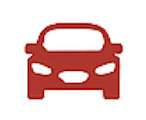A Deep Dive into Malaysia's Vibrant Car Culture
The Rise of Automotive Enthusiasm in Malaysia
Malaysia's car culture has seen significant growth since the late 20th century, evolving from a necessity-driven use of vehicles into a full-fledged automotive scene. With rising middle-class incomes and widespread access to information and technology, Malaysians increasingly treat cars as both lifestyle and identity symbols. This trend spans generations, with younger enthusiasts joining established communities to showcase their passion.
The launch of Proton in 1983, Malaysia's first national car company, was a key catalyst for the country's automotive identity. Proton models became a canvas for early modification enthusiasts, who took pride in customizing local-made cars to express personal style. This movement grew organically, giving birth to garage-based tuning shops, DIY forums, and dedicated car meets across the country.
Popular Car Modifications and Local Preferences
Performance tuning is a cornerstone of Malaysian car culture. Many car owners modify their vehicles with aftermarket exhaust systems, lowered suspensions, engine remaps, and sportier body kits. The influence of Japanese Domestic Market (JDM) styling is especially prevalent, with Toyota, Honda, and Nissan models being top favorites for tuners in the Klang Valley and beyond.
Aesthetic modifications are equally important. LED lighting, custom wraps, and large alloy wheels are commonly seen, especially in urban areas like Kuala Lumpur and Penang. Car owners also frequently personalize interiors with bucket seats, aftermarket steering wheels, and digital infotainment systems, blending comfort with tech appeal. For many, the goal is to balance street functionality with track-day readiness.
There is also a strong subculture around VIP-style modifications, influenced by trends from Japan and Thailand. This includes heavily lowered sedans with luxury-themed interiors and exterior accents like wide-body kits and chrome details. Enthusiasts in this niche prioritize visual flair and craftsmanship over sheer performance, creating distinct identities within the larger community.
Car Meets, Auto Shows, and Online Communities
Regular car meets are a vital part of Malaysia's automotive social fabric. These events range from informal gatherings in shopping mall parking lots to larger, organized exhibitions like Art of Speed and Retro Havoc. The events attract thousands of visitors annually and feature everything from classic Volkswagens to modern turbocharged hatchbacks.
Social media plays a major role in how the car scene thrives today. Facebook groups and Instagram pages allow enthusiasts to coordinate meetups, buy and sell parts, and share tuning advice. Platforms like TikTok and YouTube have further enabled visibility for local garages and independent builders, some of whom now enjoy global audiences.
Motorsport-based clubs also organize time attack events and track days at the Sepang International Circuit. These events are seen as a proving ground for performance builds and offer a legal outlet for speed-driven tuning. While not everyone competes, many attend as spectators or pit crew, reinforcing community bonds through shared interests.
The Influence of Government Policy and Import Regulations
Government policies have played a significant role in shaping car culture in Malaysia. High import duties and excise taxes on foreign-made vehicles have encouraged a strong aftermarket industry for locally assembled or lower-cost models. This economic landscape has also driven demand for used cars and grey market imports, particularly Japanese performance cars from the 1990s and early 2000s.
The Approved Permit (AP) system, which controls the importation of reconditioned cars, has influenced the types of vehicles available to enthusiasts. While it has helped protect local carmakers, it has also driven up costs and limited access to newer performance models. Many turn to Japan's used car auctions to source vehicles that offer both performance and affordability, despite the regulatory hurdles involved.
Challenges with Roadworthiness and Enforcement
Modified vehicles in Malaysia must navigate roadworthiness regulations enforced by the Road Transport Department (JPJ) and PUSPAKOM. Inspections focus on safety and environmental compliance, often leading to the rejection of vehicles with extreme modifications. This has led some owners to revert to stock parts for inspections, only to reinstall mods afterward.
Random roadblocks and vehicle spot checks are common, particularly in urban centers. Enforcement can be inconsistent, with some regions applying stricter interpretations of modification rules than others. Despite these challenges, many enthusiasts continue to pursue their passion within legal frameworks, advocating for clearer guidelines and safer tuning practices.
The Role of Classic Cars and Restorations
Classic cars are a growing segment of Malaysia's automotive scene. Models such as the Datsun 120Y, BMW E30, and first-generation Toyota Corolla are being restored by collectors and hobbyists. These projects often involve painstaking parts sourcing and custom fabrication, highlighting the commitment of Malaysia's restoration community.
Government incentives, such as exemptions from road tax for vintage cars over 25 years old, have helped sustain interest in classic vehicle ownership. Clubs dedicated to vintage marques, such as the Volkswagen Beetle Owners Club Malaysia, regularly organize heritage convoys and classic car exhibitions that draw enthusiasts from across the country.
Looking Ahead: The Future of Malaysian Car Culture
Electric vehicles (EVs) are beginning to enter the Malaysian market, prompting discussions about how the car modification scene will adapt. While current EV adoption is still low, early adopters are already exploring ways to enhance vehicle aesthetics and range through legal aftermarket additions. The government's push for a low-carbon economy is likely to influence future trends.
Meanwhile, car culture in Malaysia continues to diversify. Women-led car clubs are emerging, and hybrid tuner builds are becoming more common. Whether through grassroots meetups or high-profile track events, the country's automotive community remains dynamic, resilient, and deeply connected through a shared passion for cars.
